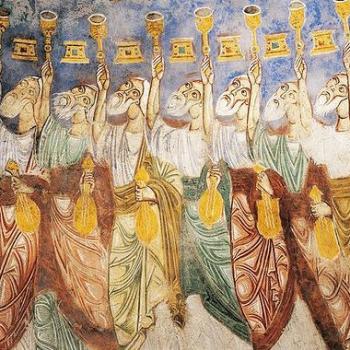The Problem of “Echo Chambers”
A problem with contemporary American society is that most people tend only to listen to people with whom they already agree. The result is almost complete ignorance of the perspectives of others. The result is a society that is no longer a community; we have no shared values.
An example is the abortion debate. The tendency is for pro-choice people to listen only to their own spokespersons, leaders, for example, of Planned Parenthood. The tendency is for anti-abortion people to listen only to their own spokespersons, leaders, for example of the so-called Religious Right. Seemingly the two never come together to listen to each other’s perspectives and be challenged by the others’ perspectives.
That is just one example; I see this as a broad and deep tendency and problem in American society. We no longer exist as one people united by anything except empty concepts like “freedom”—which can mean almost anything these days.
When did this problem begin or especially arise to this level?
I was alive in the 1950s. During the 1950s, apparently, from everything I have read and been told (that fits with my memories), America had a shared ethos even as it was oppressive to many people. That shared ethos contained within itself subversive elements—subversive to the dominance of certain kinds of people. Not everyone understood that, but some like Martin Luther King, Jr. did. My own study of King has led me to believe that he never wanted to destroy the American ethos; he wanted to open the dream enfolded within it to everyone. He wanted equal opportunity for every American.
The early women’s movement that began to bud and then blossom after World War 2 did not want to destroy the shared ethos; it wanted to open up the American dream of equality under the law and equal opportunity to everyone.
Somehow, however, during the decade between 1965 and 1975 seeds were planted by extremists especially in the mass media and in higher education to destroy the shared American ethos. The Vietnam War was a huge influence on that project. The later Civil Rights Movement unwittingly, I think, contributed to that project.
During that decade in particular television played an enormous role in promoting the idea that individual freedom is paramount over and sometimes exclusive of any socially shared values (other than individual freedom and self-determination). (Remember the theme song of “Happy Days”—“feels so right it can’t be wrong.”)
What began to disappear then was any sense of shame except for questioning individual freedom and self-determination. A situation arose that said if something is not illegal it is not worthy of shame.
We began to fragment as a people; with no shared vision of what is ethically and morally right—other than what is illegal—individuals and groups began to attempt to impose their particular vision of what is ethically and morally right on everyone else by law or public policy.
I have spent most of my life in one particular “silo” of American culture—higher education. I have noticed there a slow but steady attempt by faceless, nameless people with tremendous power to impose their vision of what is ethically and morally right on administrations, faculty and students through, for example, accreditation processes. (But I will leave that particular complaint for a later time.)
It seems to me there is very little real conversation between Americans with different visions of right and wrong. People on the “right” tend to listen only to their favorite conservative radio talk show host and people on the “left” tend to listen only to their favorite progressive authors and spokespersons. Recently here I advocated at least listening to intelligent, reflective, thoughtful “angry white males” and was strongly criticized for it. Let me give an example. I miss John Stossel—a television personality (commentator) with whom I frequently disagreed. He was a voice for conservative libertarianism who dared to speak out against “big government” thoughtfully and reflectively on major network television programs (“news magazines”) that tended to tilt leftward. I remember one show he hosted where he dared to question the claim that the disparity in pay between men and women is automatically proof of sexism. He raised some interesting questions and points. That was the last time I ever saw him on television. (I did hear later that he had a show on a cable television network but never found him; apparently my cable company does not carry that channel.)
My only point in bringing up John Stossel is to point to someone whose ideological “bent” is different from my own but who I found worthy of listening to and taking seriously—as possibly having something to say that might correct or at least bring greater balance to my own progressivism. He never ranted or raved or used hateful rhetoric and seemed calm, rational and open to conversation with people of other ideological “bents.” I was disappointed when he was dropped from the major network television “news magazine” where he was a frequent host and I suspect he was dropped for ideological reasons.
My experience has been that most Americans tend only to pay attention to the voices they already agree with. I do not think that was always the case and I do not think it is helpful to the development and sustaining of true community.

















